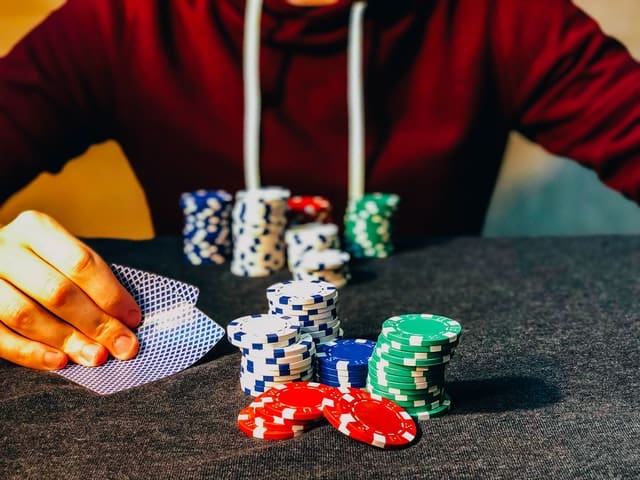
As online gambling has become so popular in recent years, the risks of becoming addicted to gambling have increased significantly. The internet has made gambling much more accessible than ever before, which makes it easy to get carried away by the excitement. You no longer have to leave your home, dress up or worry about the opening hours to gamble. Online casinos and betting sites are always open and ready for anyone who wants to enjoy the entertainment they offer.
Most people who bet on sports or play online casino games for real money have control over their gambling habits. They never gamble for more money than they can afford to lose. But there is also a group of players who do not have the same control when they gamble. These players often continue to play even though they have lost a lot of money.
When you no longer have control over your gambling, you may have a problem with activities related to playing games with real money. It does not necessarily mean that gambling already at this stage has negative financial consequences for you. It can simply mean that your gambling habits affect your everyday life in general. Maybe you gamble more often than you really want to, or perhaps your family and friends are worried about your new hobby. Often you may not be aware that gambling is a problem, but when you no longer can stop thinking about it, you may be at the risk of developing a gambling addiction.
Common signs of a gambling addiction
It is not possible to say exactly who suffers from a gambling addiction. It is something that can affect everyone, both men and women, old and young. Most people who have a problem with gambling may not even be aware of the problem. Below are some common signs that gambling has gone a little too far:
· You cannot stop thinking about various games.
· You have stayed home from work, or school or avoided meeting people because you want to gamble.
· You have a strong feeling that you want to win back the money that you have lost.
· You gamble to win money so that you can solve financial problems.
· You sell possessions to be able to afford to gamble.
· You want to gamble more often and for more money.
· You lie about how much you play and how much money you use.
· You gamble because you feel bad or to celebrate things.
How to reduce the risks of becoming addicted to gambling
There are a few things you can do to reduce the risk of falling into gambling addiction. Let us have a look at some of these:
· Create a budget for your gambling activities and make sure to never exceed that budget. The budget has to do with your personal finances, and you should only gamble with money you can afford to lose.
· Set limits on how much you can gamble and for how much money you can gamble on the online casino or betting site you gamble on.
· Avoid gambling when you are tired, angry, sad, or under the influence of alcohol.
· Never gamble for borrowed money. You should not put yourself in debt because of gambling.
· Know when to stop and never try to win back the money you have lost.
If you believe that you have a gambling addiction it is important that you seek help as soon as possible. Just like any other addiction, it is unhealthy to live with it for a long time without asking for help. There are various treatment facilities out there and hotlines to call for those addicted to gambling. Take advantage of the help that is available.
The Editorial Team at Healthcare Business Today is made up of skilled healthcare writers and experts, led by our managing editor, Daniel Casciato, who has over 25 years of experience in healthcare writing. Since 1998, we have produced compelling and informative content for numerous publications, establishing ourselves as a trusted resource for health and wellness information. We offer readers access to fresh health, medicine, science, and technology developments and the latest in patient news, emphasizing how these developments affect our lives.







